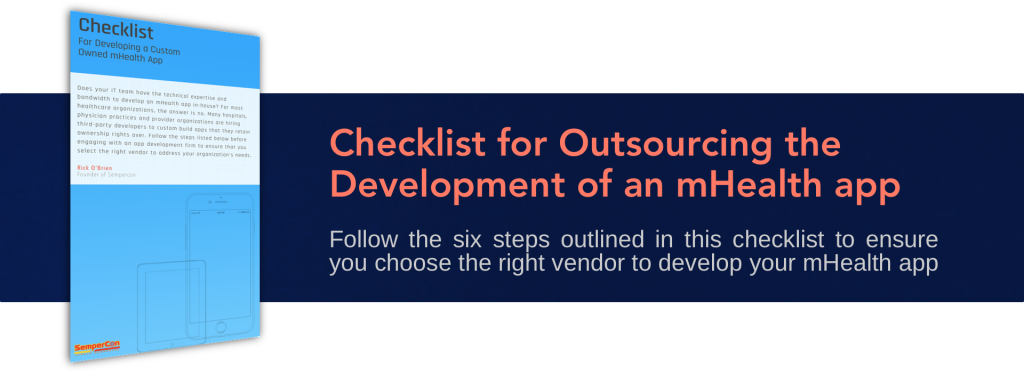Mobile technology is becoming an essential tool for hospitals and other health systems shifting to value-based care delivery. Contrary to what just a few years ago was popular opinion, physicians now take mHealth seriously. In recent surveys, 64% of healthcare executives stated that they were confident mHealth can improve health outcomes and 69% of clinicians confirmed that they already use mHealth to access patient health information. Patients, too, are embracing mHealth tools en masse. Another survey targeting US internet users found that 30% have downloaded at least one health app. In the coming weeks, we are going to address how mHealth is enabling physicians, clinicians and patients to move through the care continuum.
mHealth solutions are enhancing care delivery in these 6 key ways:
- PHI access: mHealth apps are making PHI stored in EMRs, patient portals and other clinical data systems more accessible
- New data capture: mHealth apps are collecting health-related patient data outside of traditional care settings
- Physician knowledge sharing: Physicians are joining private mobile social networks and crowdsourcing platforms
- Patient satisfaction: Hospitals are using mHealth to improve HCAHPS scores
- Care coordination: Physicians, clinicians and other hospital staff are using mHealth to better manage their workflows
- Chronic disease patient engagement: mHealth is being used to extend the care setting into patients’ homes
mHealth is becoming an essential component of hospitals’ and other healthcare organizations’ IT systems. With physicians on board and patients often preferring mHealth to other methods of healthcare delivery, mHealth apps are permeating healthcare fast.


